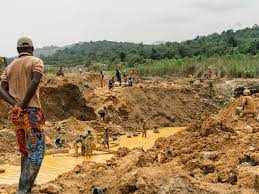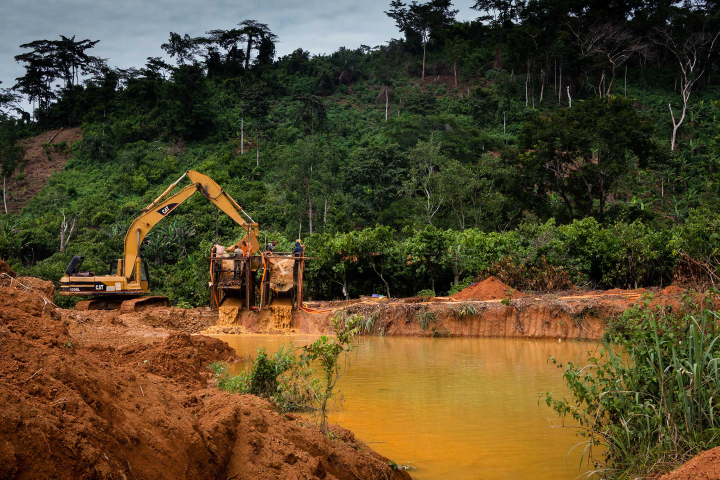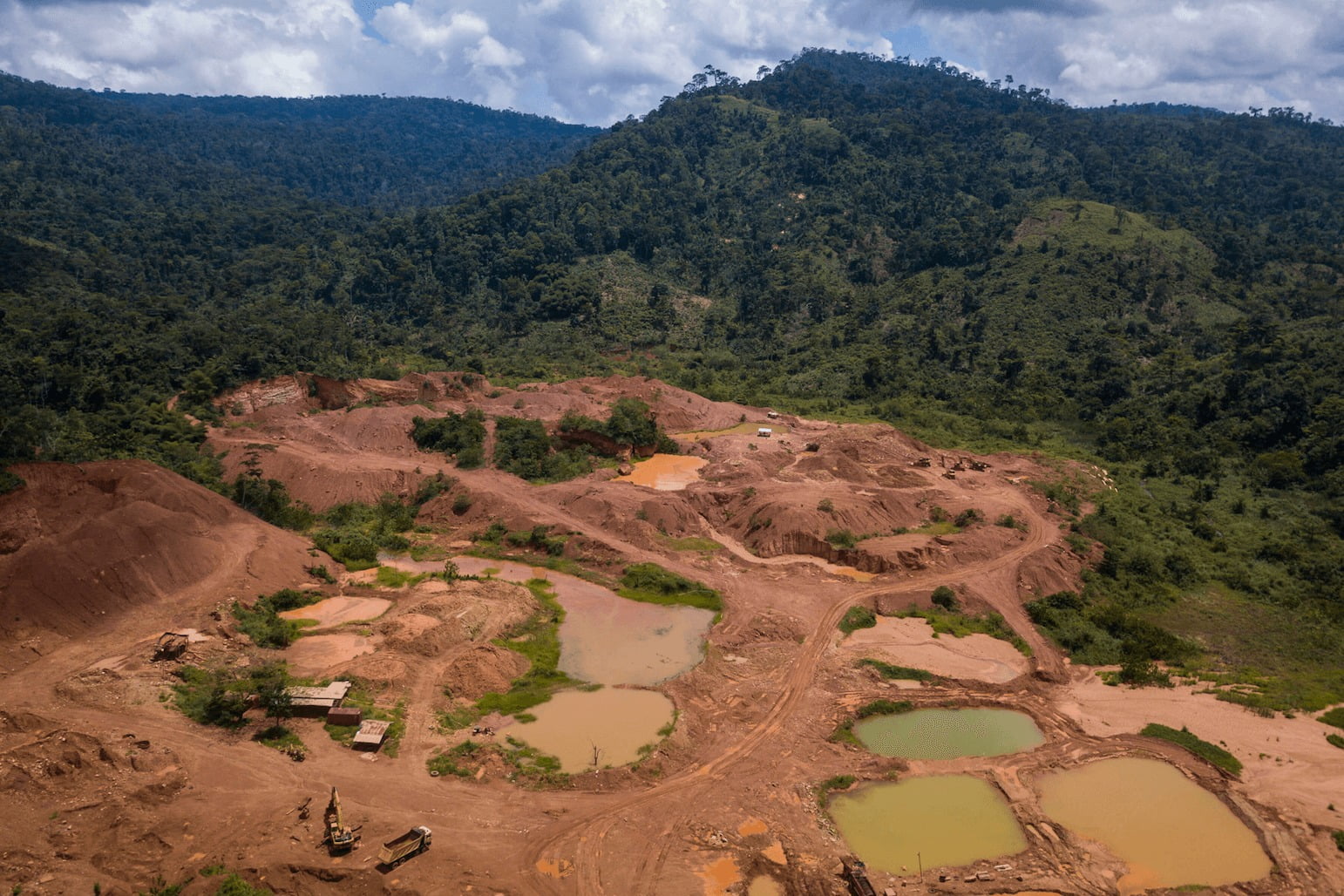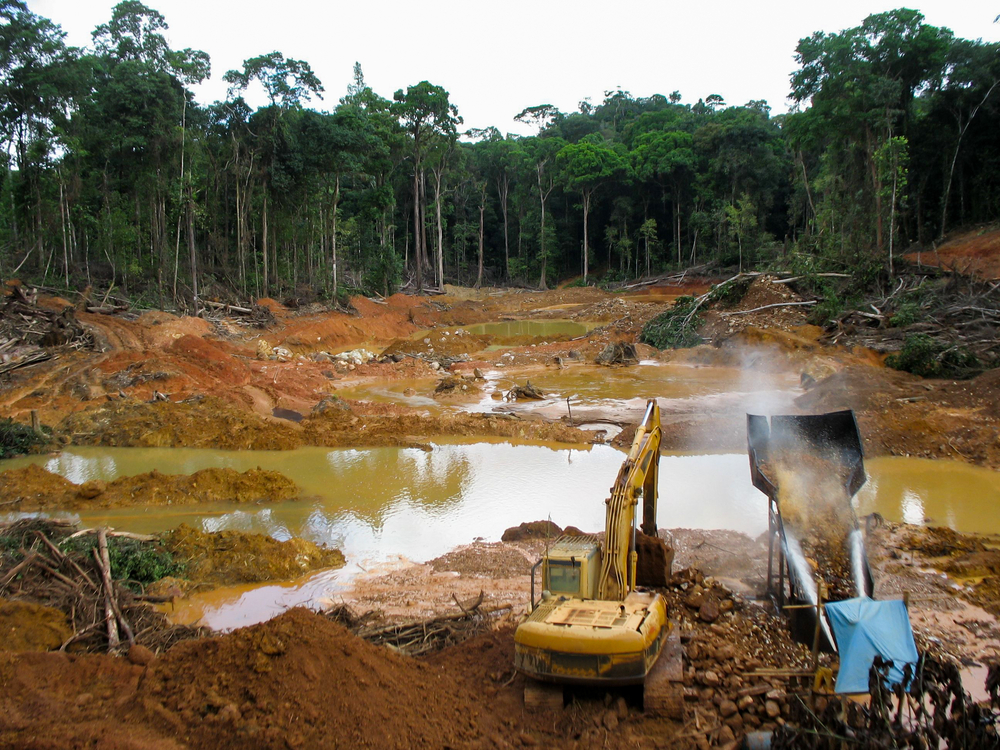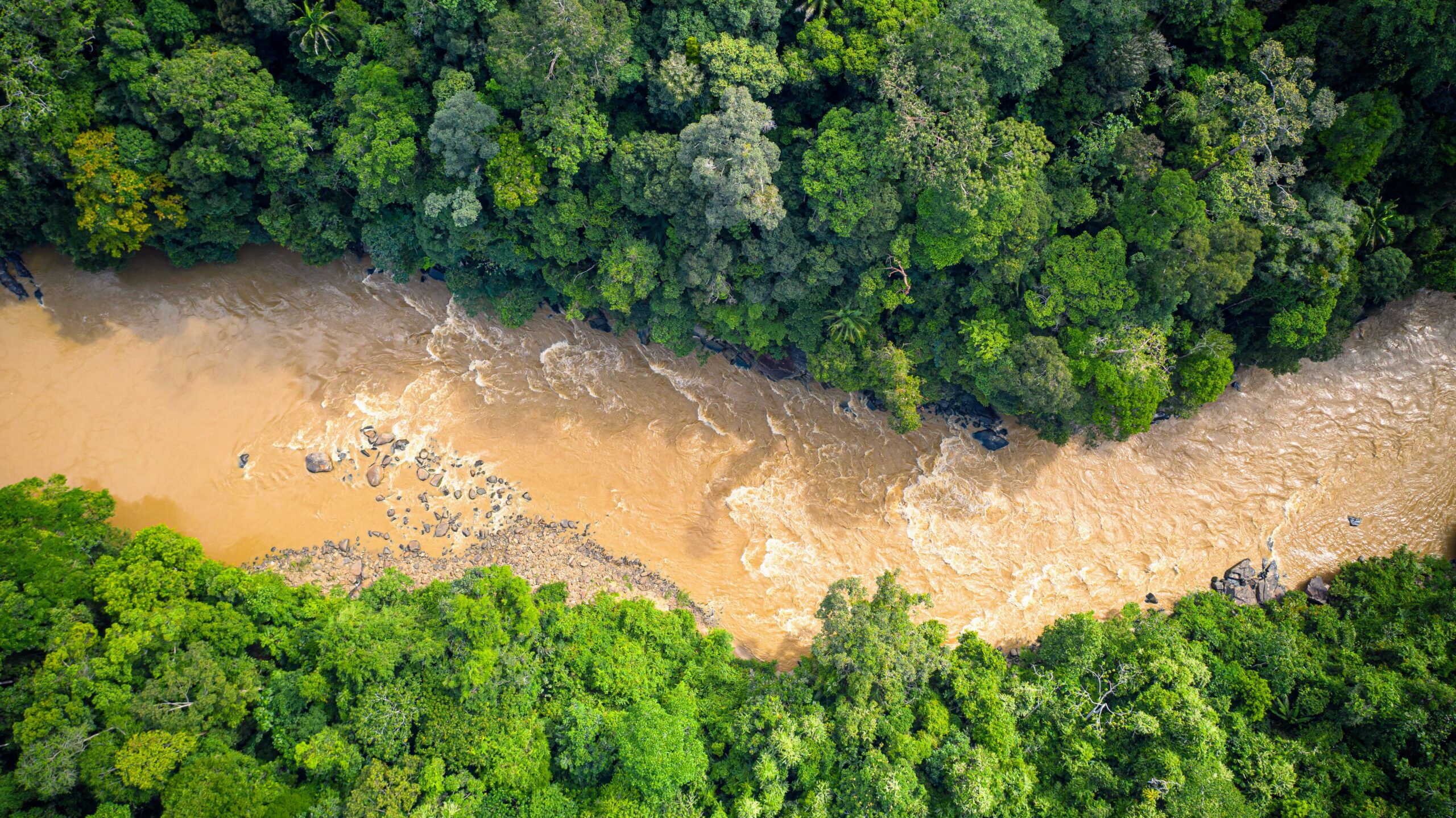Gold mining has always been a part of Ghana, from the ornate jewelry of the Ashanti kings to British colonization. In the last several years, however, largely unregulated galamsey mining has ramped up—due in part to Chinese investors who bring sophisticated equipment and a lagging economy that makes the prospect of striking gold too sweet to pass. These often illegal operations can result in contaminated water, deforestation, and a rise in violent crime. (Learn more about the real price of gold.)nd.
Illegal gold mining in Ghana further exacerbates a volatile cocoa market. In 2014, experts predicted a global cocoa shortage by 2020. However, cocoa production statistics have been unpredictable since then, according to the most recent data from the 2015-16 growing season. That year, there was a cocoa surplus, attributed to a prolonged rainy season. Recently, the price of the bean has plummeted to historic lows on global commodity exchanges—negatively impacting the profits of West African cocoa farmers.
In 2011, Ghana produced a record-setting amount of cocoa, weighing in at over one million tonnes. Since then, as illegal mining steadily ramped up, cocoa production has trended downwards, with a drop to 740,000 tonnes in 2015.
“Galamsey is the biggest threat to cocoa production,” Pomasi Ismael, the chairman of a cocoa buyers collective, told local media recently.
Several other factors have been blamed for the volatile nature of the cocoa market, most notably climate change, which can usher in an extremely dry season one year and excessive rain the next. Deforestation from illegal gold mining may speed up such effects.
Gold and cocoa are both integral parts of Ghana’s economy and national identity, yet the two resources’ coexistence has contradictions. Cocoa was first planted in Ghana in the 1870s, and the former Gold Coast colony became the largest exporter of the chocolate-making beans for the next century, until neighboring Ivory Coast surpassed them. Two decades after the arrival of cocoa, the legal Obuasi gold mine was founded. Closely regulated, the big industrial operation transformed a small Ashanti village into a cosmopolitan city with tennis courts and golf clubs. For decades, miners toiled underground in the sprawling complex. Today, the mine is no longer producing gold and galamsey miners have quickly filled the void, wiping away cocoa farms in their path.
Ghana, one of the world’s biggest producers of cocoa beans, is facing a crisis around dangerous and dirty galamsey, or informal, mining—which experts warn could derail its agriculture sector.

